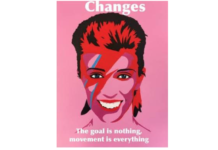The New Zealand Government has pledged to halve its emissions (as at 2005) by 2030. This pledge went further than the 30% originally pledged by New Zealand in 2016 when it signed the Paris Agreement, and brings our emissions reductions plan in line with the He Pou a Rangi/ Climate Change Commission’s recommendations.
The government’s plan to cut these emissions will be released in May 2022, giving New Zealand eight years to implement and achieve these ambitious reductions. It will require preventing 149 million tonnes of carbon dioxide from entering the atmosphere, and currently the government plans to outsource 102 million tonnes by purchasing carbon credits from other countries. Not only is this “kicking the can down the road” in terms of emissions reductions, but recent history suggests that purchasing offshore credits is difficult to regulate and can result in disreputable accounting.
COP26 has also yet to reach a consensus over whether limits to carbon credit purchases will be applied. If implemented, New Zealand may have to find other ways to reduce emissions and meet our target. Previous summits have failed to reach such a consensus, and the deadline for these negotiations is this Friday at midnight.
Our Seas Our Future (OSOF) policy coordinator, Gemma Coutts says New Zealand eagerly awaits the results of the COP26 negotiations, as a move towards significant carbon reductions will improve the quality of life for ourselves and our seas.
“As reported by the He Pou a Rangi earlier this year, Aotearoa is currently not doing enough to address the complexity of climate change and the issues it brings. We need to ensure that moving forward, emissions are reduced through decarbonisation, rather than outsourcing the majority of our emissions through carbon credits, as this could create further complications in the future.”
“The current government must establish cohesive and holistic policies that are led in partnership with tangata whenua, local councils and communities, so that we are able to achieve these targets.”




